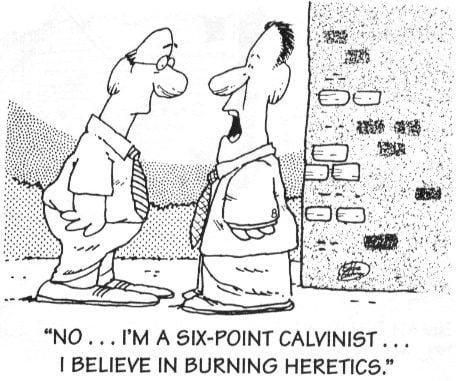
One of the most enduring ideas in economics is that free markets bring peace between countries. It comes from the notion that commerce drives humans to follow their mutual material interests rather than make destructive war due to passions.
This was the animating force behind the U.S. granting China its “most-favored-nation” trade status in 2000, which allows for free trade and economic cooperation. Republicans and Democrats alike assured the public that the deal would bring “constructive engagement” and expose communist China to America’s “ideals” of democracy. Where are we today? Beijing has moved closer to authoritarianism, economic competition is fiercer than ever, and American and Chinese diplomatic relations are near a crisis point, with both countries brandishing threats of war. Free trade has brought some peace, but it has not brought lasting friendship between the world’s two superpowers.
The same point could be made for Russia. Germans clearly thought that free trade for Russian oil would bind Vladimir Putin’s kleptocracy to democratic Europe and lead it toward a more prosperous and open society. Instead, it weakened democratic Europe’s capacity to respond to Putin’s dictatorship and his bloody invasion of Ukraine.
Does this mean that the old idea of a “gentle commerce” of free markets, famously espoused in the French Enlightenment, is dead? Perhaps it never really existed. History shows that free markets can be a basis for friendship between powerful nations, but they are far less successful at securing peace and democracy than many have hoped. In fact, the noble talk of the free market was sometimes simply an excuse to engage in the kind of “great power” competition that too often leads to war and plunder.
….
When British free marketeers managed to liberalize their own markets with the repeal of the Corn Laws in 1846, it heralded a laissez faire era in Britain but did not bring international peace. Richard Cobden, the famed free market leader of the Anti-Corn Law League, believed that free markets, pacifism, industrial know-how, Christianity and good work ethics would lead Britain to home-grown prosperity for the working man. Indeed, the very confidence and wealth that buoyed so many British to believe in the superiority of free markets was grounded in colonial ideals and wealth. The British colonial leader John Bowring used evangelical terms, claiming that imperial force and laissez faire economics could only bring good: “Jesus Christ is free trade,” he exclaimed, “and Free trade is Jesus Christ.” But the Pax Britannica of the Empire was based on gunboats, violent coercion and the pillaging of riches from colonialized nations. It is now estimated that Britain stole more than $40 trillion from India alone during the hundred-year rule of the Raj.
And while empire created a free trade zone for the British, it also sparked an almost constant series of colonial wars — from the more than 100 years of war with France in the eighteenth century, to another century of overseas wars with peoples and states in the Caribbean, China, India, Burma, New Zealand, Persia and Africa. Indeed, to gain free market agreements with Latin American countries, Turkey and China, the British relied on military threats. Free trade remained based on naval might. While some British free marketeers called for an end to the reliance on colonialism, confident that free trade agreements with other industrial powers brought peace and advantage to industrially superior Britain, Britain’s competitors began to see that if they wanted the free trade and imperial advantages enjoyed by Britain, they too would need to arm.
In 1905, the Cambridge critic of free market economics William Cunningham prophetically warned that the militarization of Japan, Russia and Germany was in direct response to Britain’s one-sided imperial free market and that it could lead to world wars. These countries could not compete with Britain, so from the 1870s to the 1890s, Russia, Italy, Germany, France and America were putting up tariffs against what they considered Britain’s domination of world commerce. Hungry for Britain’s empire and markets, Europe moved toward world war.
When World War I arrived, it could be seen as either a product of protectionism and trade war, or, as Cunningham said, a reaction to imperial free market Britain’s dominance. In any case, with rising nationalism and communism, hope for universal free trade faded. The most famous of the Austrian free market thinkers, Ludwig von Mises and Friedrich Hayek, formed their free market thought in response to rising socialism, but also in reaction to the Nazi regime which forced them to flee Austria to the United States. Both thought that the state was the ultimate danger to peace, but in the end, when World War II was over, the American state bankrolled the rebuilding of Britain, France, Germany and Japan, using the Marshall Plan to rebuild, but also to dictate democracy to, former foes, and, in doing so, to create the most successful economies of the modern age. Paradoxically, the United States provided well over $150 billion in today’s dollars to European countries, and more than $20 billion to Japan, as well as backing government intervention into these economies, to lay the groundwork for a future democratic free trade zone.
During the Cold War, America’s massive military kept the peace among its industrialized, democratic partners, while waging a cold and hot war against communism around the globe. U.S. government support, peace, prosperity and free trade were the dividends for America’s allies. But the global conflict with communism again meant that it took war and government support to establish democracy and, potentially, free markets through the GATT agreements that began in 1947 and expanded throughout the 20th century.
Even when the Berlin Wall fell in 1989, a real possibility for peace emerged with the normalization of relations between America, Russia, Europe, India and eventually China. During this period, free markets expanded — but even in peacetime, military budgets have exploded under presidents of both parties. And still, with much of the world embracing free trade, the United States again went to war in Iraq and Afghanistan, spending trillions of dollars, and, one might argue, squandering its own free market peace dividend.
Now we arrive at a more perilous moment. Democracy is in retreat around the world. The global economy seems poised for a recession. And war has broken out in Europe, while tensions rise between the U.S. and China. Meanwhile, public skepticism about free trade is surging in this populist moment. Can free markets keep the peace? We must hope they can. However, history shows that free trade is often in the eye of the beholder, anyway. Ultimately, a military based pax or deeper common interest might be necessary to keep commerce and the world on gentle terms.
— Jacob Soll, Politico, One of the Most Famous Ideas in Economics Is Wrong, October 5, 2022
Bruce Gerencser, 68, lives in rural Northwest Ohio with his wife of 47 years. He and his wife have six grown children and sixteen grandchildren. Bruce pastored Evangelical churches for twenty-five years in Ohio, Texas, and Michigan. Bruce left the ministry in 2005, and in 2008 he left Christianity. Bruce is now a humanist and an atheist.
Your comments are welcome and appreciated. All first-time comments are moderated. Please read the commenting rules before commenting.
You can email Bruce via the Contact Form.











